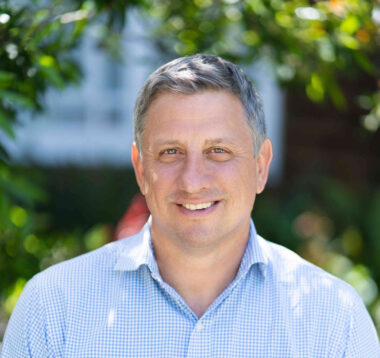A Monash University sexual health expert has warned that an unintended consequence of Australia’s migration rules could compromise Australia’s goal to end the HIV epidemic by 2030.
Associate Professor Jason Ong, of the Melbourne Sexual Health Centre (MSHC), at Monash University’s School of Translational Medicine*, says some people living with HIV are choosing cheaper, suboptimal antiretroviral treatment (ART) out of fear that their applications for permanent residency (PR) will be rejected.
This is because they must show their medical spending will not total more than $51,000 over 10 years — a requirement, known as the Significant Cost Threshold, designed to screen out applicants who might pose extra costs to Australia’s health system.
“Being on the most effective treatments puts many people beyond that threshold, resulting in automatic rejection of their application for PR,” said Associate Professor Ong, whose findings were published in the journal Sexual Health.
“Unfortunately, cheaper treatments aren’t as good at controlling HIV, and they’re not as safe.”
Australia is a world leader in extending PrEP (an antiviral medicine that prevents HIV) to groups at risk of HIV, and is working towards elimination of HIV transmission by 2030. This does not mean zero new cases of HIV, but the absence of sustained endemic community transmission.
The study involved presenting the journeys of six patients with a mean age of 39 years living with HIV and migrating to Australia from Asian and European countries.
“We know that overseas-born gay and bisexual men are showing slower declines in transmission,” Associate Professor Ong said. “It’s important to bring this group with us as we work towards elimination.”
“Thanks to antiretroviral therapies, HIV is now a manageable, chronic disease. It benefits everyone in the community if people living with HIV are on the right treatments.”
Dash Heath-Paynter, the CEO of Health Equity Matters — the national federation for the HIV community response — urged the Federal Government to examine New Zealand’s 2022 decision to raise its medical expenses threshold from NZ$41,000 to $81,000.
“There may be other options to help solve this problem, but raising the significant medical costs threshold would be a very good starting point,” Mr Heath-Paynter said.
More by Jason Ong on Monash Lens: International migrants left behind in HIV response: study
For media enquiries please contact:
Monash University
Cheryl Critchley – Media and Communications Manager (medical)
E: [email protected]
T: +61 (0) 477 571 442
For more Monash media stories, visit our news and events site
For general media enquiries please contact:
Monash Media
E: [email protected]
T: +61 (0) 3 9903 4840
*The Monash University School of Translational Medicine (STM) — formerly the Central Clinical School — improves the human condition by bridging basic science and clinical practice. Our research strengths include many of the acute and chronic conditions responsible for the global burden of disease and disability: from cardiovascular and respiratory diseases to diabetes, cancer, blood disorders, trauma, neurological conditions and mental health disorders. STM is home to Australia’s first dedicated university departments of Neuroscience and Diabetes, as well as the Low FODMAP Diet™. We are innovators in clinical trials, drug development, devices and therapeutics. With our colleagues in the Monash School of Public Health and Preventive Medicine, STM is a member of the Alfred Research Alliance (A+), one of the world’s leading healthcare and research precincts.
monash.edu/medicine/translational


